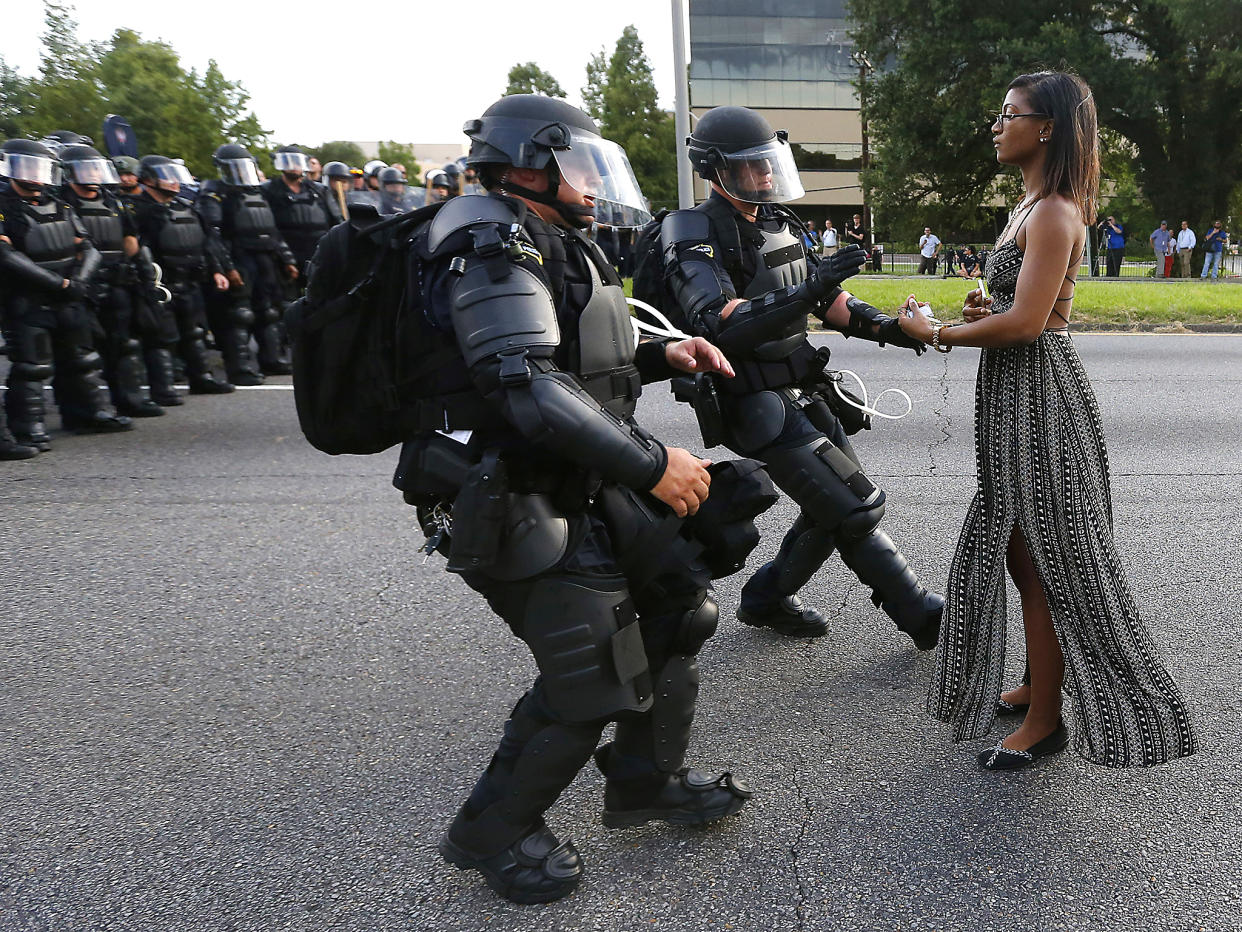Hateful rhetoric is making the world a more dangerous place, but here’s how to beat it

Not long ago it was considered too sensationalist to compare current political events to the dangerous days of 1930s Europe. Now that question is asked plainly in the open: are we returning to the same perilous atmosphere that preceded the Second World War?
From the US to Hungary, the United Kingdom to the Philippines, political figures and movements are openly peddling dangerous rhetoric that implies some people are less human than others.
We are already seeing the very real consequences of this.
While world leaders fail to rise to the challenge of the refugee crisis, 75,000 refugees remain trapped in a no man’s land between Syria and Jordan. Thousands of refugees on the Greek islands are forced to endure squalid living conditions for months on end in overcrowded camps, with a lack of hot water, poor hygiene, bad nutrition, and inadequate medical care.
From the worsening plight of the Rohingya people in Myanmar to mass unlawful killings in South Sudan, thousands of people lost their lives because of their religious or ethnic background.
Atrocities continue to flash across our screens – like the hospital bombings in Aleppo – and the world fails to adequately respond. Within the first few weeks of Donald Trump’s presidency, we saw the most powerful country in the world attempt to embed in policy the demonisation of Muslims and refugees.
We have seen these kinds of divisive and toxic politics before.
We cannot remain silent in the face of these trends. Human rights abusers often depend on a small group to carry out their dirty work, and rely on the rest of us to stay silent and keep out of their way.
Yet even in the darkest moments of history, brave individuals have stood in their way. If you want to make a difference: get in the way.
In every corner of the world, this is already happening. Heartening stories of resistance are just as common as saddening stories of prejudice and discrimination.
While European governments let refugees drown in the sea, Greek islanders, nominated for a Nobel Peace Prize last year, opened their homes and their hearts. They gave up their time and in some cases, even their jobs to provide support to refugees.
Across Africa, people’s movements – including in countries where it would have been unthinkable just a few years ago – emerged to galvanise and channel popular demands for rights and justice. Protesters and human rights defenders repeatedly found inspiring ways to stand up against repression and campaigns such as the #oromoprotests and #amaharaprotests in Ethiopia, #EnforcedDisappearancesKE in Kenya, #ThisFlag in Zimbabwe, and #FeesMustFall in South Africa formed iconic images from the year.
In Gambia, a surprise election result brought an end to 22 years of fear – inspiring evidence of what can be achieved when we stand up for our freedoms. For the first time in their modern history, Gambians ignored the threats and repression to come out in their tens of thousands to campaign in peaceful elections, and the newly elected President Adama Barrow has since freed dozens of political prisoners and brought Gambia back to the International Criminal Court.
In the US, peaceful activists in their hundreds of thousands got in the way. The Black Lives Matter movement took to the streets to march in the face of militarised police tactics, while the “water protectors” of Standing Rock showed resolve when it would have been easier to quail before the armour and batons. And last month, people rushed to airports in their thousands to disrupt a ban on refugees and migrants that they instinctively knew was wrong
Despite systematic harassment and intimidation, activists in China found subversive ways to commemorate the anniversary of the Tiananmen Square crackdown. They posted an online advertisement for a popular alcoholic drink with a label reading “Remember, Eight Liquor Six Four” – a play on words in Chinese echoing the date of June 4, 1989 when the notorious event occurred, accompanied by a picture of “tank man”.
That iconic image of a lone man standing in front of a column of tanks exactly captures the spirit of activism that we need today. Iesha Evans, the young woman who at the Baton Rouge protests last summer stood serenely as two heavily armed policemen in riot gear rushed at her, proves that that spirit of defiance is still alive today.
We should never forget that whenever leaders seek to divide, demonise and repress people, there are always people willing to stand up and get in the way. Building a sustainable movement for change starts with this simple act of defiance. Never has it been so urgent to stand up and get in the way.
Salil Shetty is Secretary General of Amnesty International. Amnesty’s Report is out today

 Yahoo News
Yahoo News 
